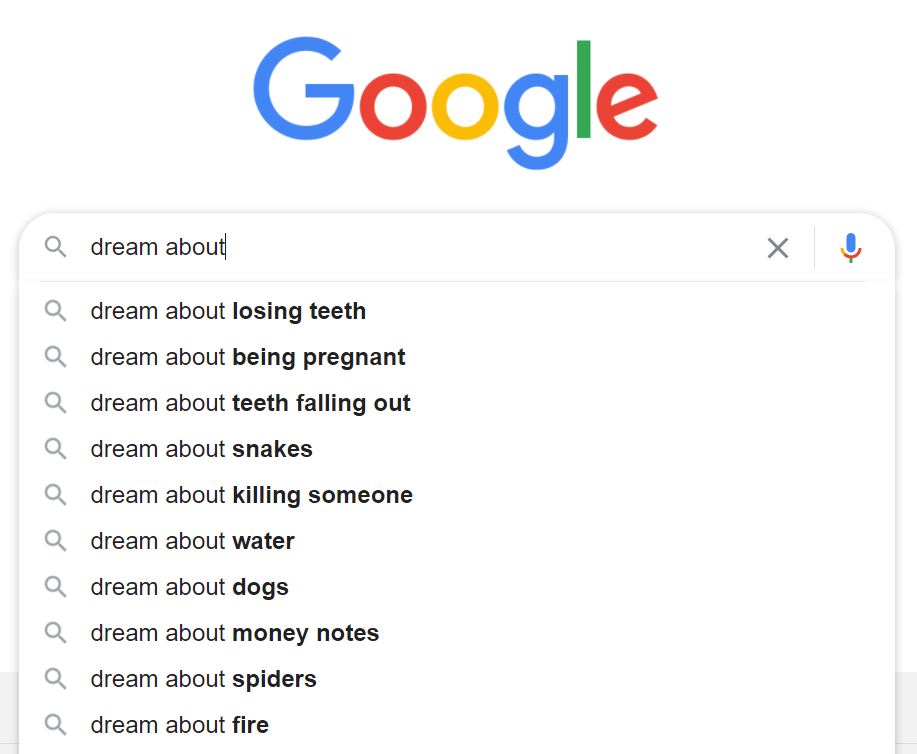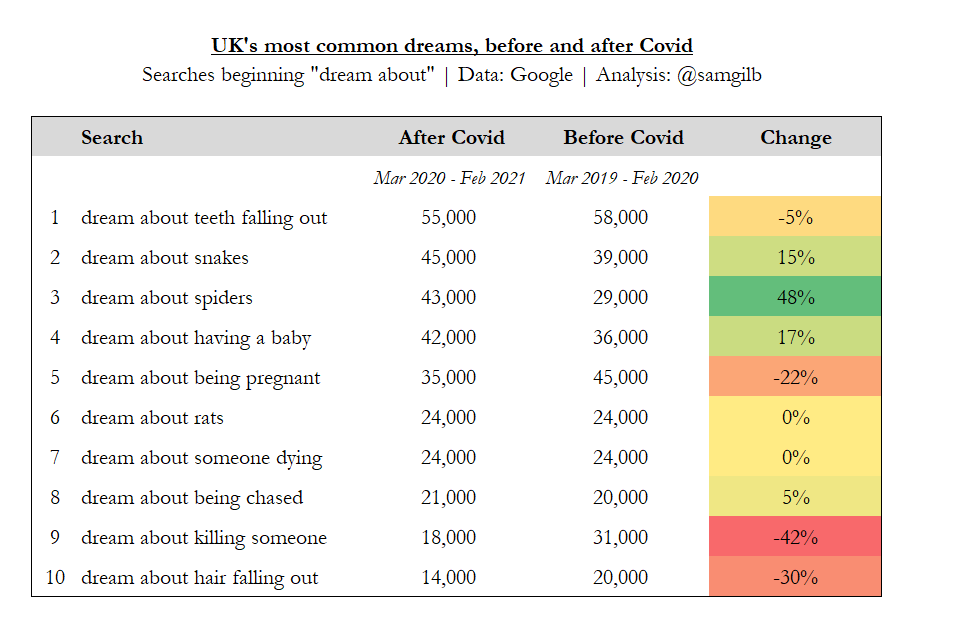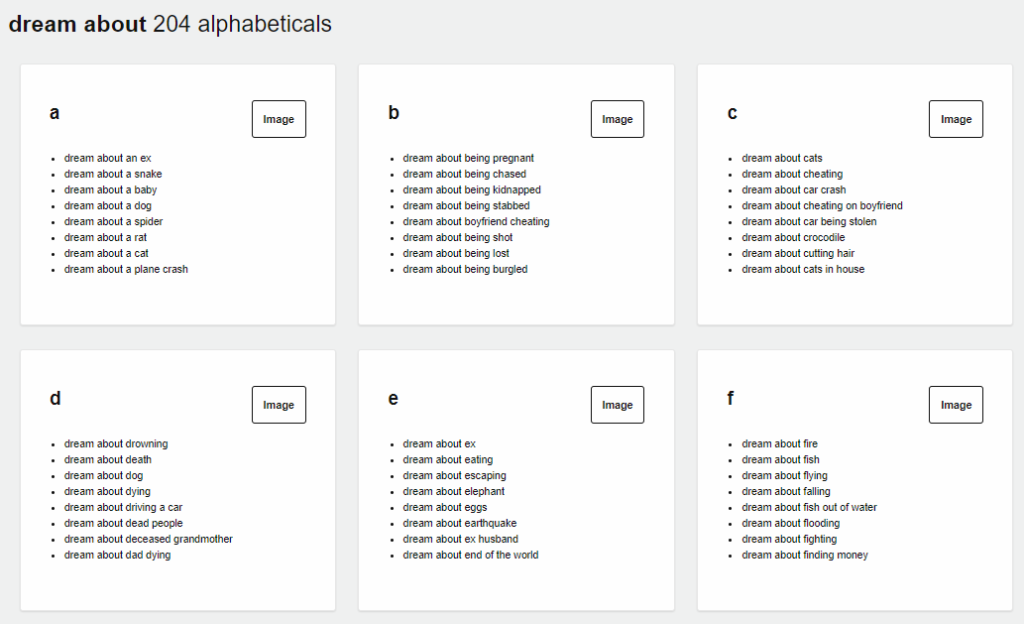If you’re a regular reader of the Search Listening blog, you’ll know all about the ways Google data can offer a window onto the collective consciousness of humanity. What you might not realize is that it can tell us about our collective unconscious too.
It turns out that many people who are curious about the meaning of their dreams turn to Google to help make sense of them. In fact, by my calculations, in the UK there have been more than 320,000 searches beginning “dream about” in the last 12 months.

Looking at how patterns in dream-related searches have evolved sheds light on how Brits’ dreams have changed during the period of the Covid-19 pandemic. Far more people have dreamt about spiders (+48%), compared to the previous 12 months, while far fewer people have dreamt about their hair falling out (-30%).
Confusingly, while there were around 10,000 fewer dreams about getting pregnant, there were around 8,000 more about having a baby. And personally, I was very relieved to learn that at least 45,000 people had dreamt about snakes in the last year, having been troubled by dreams of great white serpents lurking in Hackney’s waterways earlier in the pandemic…
When the BBC investigated strange coronavirus dreams in April 2020, they focused on dreams reported on social media – from nightmares about swarms of bugs, to recurring anxiety dreams about logging on to the wrong Zoom meeting. This helps highlight one of search listening’s advantages over social listening: you are much more likely to get a representative picture of what is really on people’s minds by looking at what they search for than by looking at what they choose to post on Twitter or Facebook.

Search data shows that – despite the pandemic – dreams about teeth falling out are still the UK’s most common dream. Sigmund Freud interpreted these dreams as expressing feelings of powerlessness and the fear of punishment, but recent academic research from Israel has suggested a more prosaic explanation: dental irritation (“specifically, tension sensations in the teeth, gums, or jaws upon awakening”). Meanwhile, it’s tempting to speculate that the dramatic -42% fall in searches for “dream about killing someone” might be explained be people having to spend less time in the same workplace or train carriage as their irritating co-workers and inconsiderate fellow commuters.
But these popular dreams are just the tip of the iceberg. A quick search of AnswerThePublic for “dream about” shows people are also dreaming about jogging and Jesus; about exes and explosions; about zebras and zombies. If only Freud had lived to see it.

Sam Gilbert is the author of Good Data: An Optimist’s Guide to Our Digital Future.







